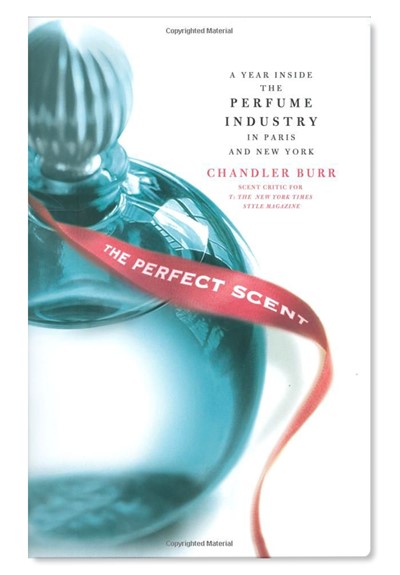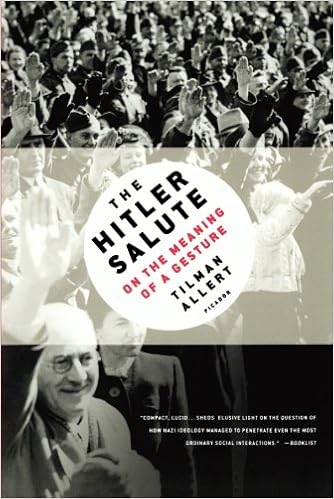Sunday, November 30, 2008
On "Doors Closing" by Amy Anderson (2751 words) ****
Snoopers. How many have you been the victim of? How many have you victimized? Why do we have such curiosity about others who we know or live with? Is it a secret crush? A desire to be like someone else? Or is it a wish to be with a given person? Do you wonder where you fit in someone else's life? Do you imagine yourself in his or her thoughts? What are those thoughts? Maybe it's best you don't know. Maybe it's best you just keep imagining. Maybe it's best you don't even meet. These are all the things Anderson's story delves into, with its lump of inevitable sorrow in the end, a sadness I feel like I've shared a few times myself. Read the story here at Failbetter.
Labels:
2000+ words,
Amy Anderson,
Failbetter,
Four-Star Stories,
Stories
Sunday, November 23, 2008
On "At the Core" by Evan Lavender-Smith (2056 words) ***
Despite my love of John Steinbeck in my younger years, I am not a fan of allegory. Still, it's a valid form of structuring a story and giving it depth, and when I see it done well, I have to respect that. Lavender-Smith's piece is such an allegory. What's interesting about the piece, however, isn't just the obvious set of metaphors that go along with the stories events but the way in which the narrator focuses on one subject--what he buries in the backyard over the course of his childhood. Read the story here at Memorious.
Labels:
2000+ words,
Evan Lavender-Smith,
Memorious,
Stories,
Three-Star Stories
Sunday, November 16, 2008
On "The Rattle" by Al Dixon (465 words) ****
A writing teacher of mine once noted that it is often the absence of knowing something that gives a story its power. Tell us what is in that bag everyone wants--or wants to get rid--and a story might just lose some of its bang, its malice, its sense of impending dread. Movies, especially thrillers and horror movies, are often built around this. I think of The Blair Witch Trial, for instance, which gained most of its thrills by failing to show viewers much of anything. Sometimes a few screams in the dark are worth more than all the blood and gore a director can throw at someone. And sometimes, a rattle that makes a man cry years later hints at something we probably are happier not knowing about. Read the story here at Failbetter.
Labels:
Al Dixon,
Failbetter,
Flash Fiction,
Four-Star Stories,
Stories
On "The Perfect Scent" by Chandler Burr ****
I have probably worn cologne less than a handful of times in my life. I have no real interest in perfume. And yet, I was drawn to this book precisely because of my lack of interest in the subject. Perfume is something I so rarely think about that the idea that whole lives revolve around this intrigued me (just as say, a book about hair care products probably would, or laundry detergent). Burr, who covers the perfume industry for the New York Times (again, another surprise--that someone on a newspaper staff actually has as his sole job to cover scents), goes into a single year in the industry, and really into the making of two particular perfumes. One is a high-end fashion perfume, Un Jardin sur le Nil, and the other is a celebrity endorsed commercial perfume, Sarah Jessica Parker's Lovely. What emerges is a story of an industry whose production components bear similarities to the industry I'm more familiar with, books--that same banter back and forth between marketing and the people who do the production of the product, that same time versus cost concern, that same set of people behind a product that one never hears about or knows about, those same kinds of fads that persist for a half a decade and then seem hopelessly in bad taste (in the sixties, dirty/sweaty/animal smells were in, smells one would, as Burr notes, get kicked out of restaurants for today; by the eighties, clean became hip), those same consistent best-sellers that never seem to die (Chanel No. 5). And then there are the people the book portrays, with two central figures in particular: Parker, who comes across as a very likable person; and Ellena, the perfumer at the high-end Hermès, who seems the consummately conscientious artist.
But most fascinating of all is Burr's--and every character in the book's--attention to smell. Despite the fact that smell is supposedly the strongest sense in terms of spurring memories, I have never spent so much time thinking about it. I can't say I even notice most smells, unless they're the stench of something rotting on the bus, something that makes me want to move away. Here, Burr introduces a bevy of them, describing them in ways that often aren't smells at all, at least, not in the manner that I'd think of them--smells with colors, with weights, with stories. And then there are the perfumes themselves, modeled after animals or detergent or sweat or car exhaust or fruit or flowers or cement after rain. I was so inspired at one point, I went to my medicine cabinet and pulled out the four bottles of cologne I've collected over the years--gifts I never wear--and stuck each one to my nose. Indeed, some of them do have characteristics that vaguely resemble something else. One of my scents is definitely citrus; another is vaguely like motor oil. The other two, however, as one not versed in the signification of smell, I could not really discern as anything other than simply perfume--a particular kind of alcohol. But I'm tempted, now, to walk into the mall and play among the spray bottles, testing what it is the perfumer has attempted to do. I feel like a whole other world has opened to me.
But most fascinating of all is Burr's--and every character in the book's--attention to smell. Despite the fact that smell is supposedly the strongest sense in terms of spurring memories, I have never spent so much time thinking about it. I can't say I even notice most smells, unless they're the stench of something rotting on the bus, something that makes me want to move away. Here, Burr introduces a bevy of them, describing them in ways that often aren't smells at all, at least, not in the manner that I'd think of them--smells with colors, with weights, with stories. And then there are the perfumes themselves, modeled after animals or detergent or sweat or car exhaust or fruit or flowers or cement after rain. I was so inspired at one point, I went to my medicine cabinet and pulled out the four bottles of cologne I've collected over the years--gifts I never wear--and stuck each one to my nose. Indeed, some of them do have characteristics that vaguely resemble something else. One of my scents is definitely citrus; another is vaguely like motor oil. The other two, however, as one not versed in the signification of smell, I could not really discern as anything other than simply perfume--a particular kind of alcohol. But I'm tempted, now, to walk into the mall and play among the spray bottles, testing what it is the perfumer has attempted to do. I feel like a whole other world has opened to me.
Labels:
Books,
Chandler Burr,
Four-Star Nonfiction,
Nonfiction
Sunday, November 9, 2008
On "Richie" by Tao Lin (1717 words) ***
What sticks in my head about this piece that I'd come back to write about it sometime later? It's probably the typically ludicrous world that Tao Lin sticks us in. Here, a family is taken hostage by some particularly inept kidnappers, who also happen to be studying for exams. Do you know how much you're worth? Do you know how much you're worth for one week? one day? one hour? a minute? Read the story here at Bear Parade.
Labels:
1000+ words,
Bear Parade,
Stories,
Tao Lin,
Three-Star Stories
On "The Hitler Salute" by Tilman Allert ***
The subtitle of this book is On the Meaning of a Gesture, and indeed, that's what this is--a rending, a tearing apart, an analysis of a single gesture--the greeting of Germans during Hitler's Nazi regime. I can't say I was terribly into the discussion of psychology that the author put me through, but what was fascinating was reading about the gesture itself--how it came to be and how Germans were forced to use it. Imagine a political party taking office, creating a way of saying hello (in Hitler's case, it was "Heil Hitler"), and then enforcing it. Worse, imagine that you don't approve of the gesture, but not going along with it could result in losing a job, in losing one's friends, in even losing one's life. This was life for many Germans during the regime.
The book's most interesting section discussed the heil gesture in relationship to religion, the military, and the family. In the latter case, it's a bit hard to know how exactly the gesture was used in informal family life. In the case of the military, officers managed to avoid using it among military men until 1944, when they finally gave in as a show of loyalty after men in the military had attempted to assassinate Hitler. Until then, it was understood that the gesture was simply too much for the military. Among church people, the gesture was mostly given into--though a few resisted, in one case losing his life, in one case fleeing the country. Or try this for size--ways to get out of the gesture. One way, used by a particular professor, was to carry so many books that he couldn't "heil" when entering the classroom.
In the closing section, the book discusses how some embraced it, while others embraced it only in practice (keeping a kind of ironic distance even while doing it to please others). Both, the author says, lead to moral problems. But most Germans did give in, whether superficially, half-heartedly, or wholly. Being the kind of person who doesn't like to create trouble, I suspect that I would fall into one of the first two camps. And in that sense, according to the author, I would still be complicit in the people's sins. Alas, I am glad I do not live in such a society, where I can show off my general cowardliness with such aplomb.
The book's most interesting section discussed the heil gesture in relationship to religion, the military, and the family. In the latter case, it's a bit hard to know how exactly the gesture was used in informal family life. In the case of the military, officers managed to avoid using it among military men until 1944, when they finally gave in as a show of loyalty after men in the military had attempted to assassinate Hitler. Until then, it was understood that the gesture was simply too much for the military. Among church people, the gesture was mostly given into--though a few resisted, in one case losing his life, in one case fleeing the country. Or try this for size--ways to get out of the gesture. One way, used by a particular professor, was to carry so many books that he couldn't "heil" when entering the classroom.
In the closing section, the book discusses how some embraced it, while others embraced it only in practice (keeping a kind of ironic distance even while doing it to please others). Both, the author says, lead to moral problems. But most Germans did give in, whether superficially, half-heartedly, or wholly. Being the kind of person who doesn't like to create trouble, I suspect that I would fall into one of the first two camps. And in that sense, according to the author, I would still be complicit in the people's sins. Alas, I am glad I do not live in such a society, where I can show off my general cowardliness with such aplomb.
Labels:
Books,
Nonfiction,
Three-Star Nonfiction,
Tilman Allert
Friday, November 7, 2008
On "Dizzy" by Jurgen Fauth (394 words) ***
One's future in a deck of cards, one's luck, one's destiny. Fauth does a good job here of making the old idea fresh by making it literal. I won't say too much more, lest this blog entry grow longer than the story itself. Read the story here at Vestal Review.
Labels:
Flash Fiction,
Jurgen Fauth,
Stories,
Three-Star Stories,
Vestal Review
On "The World without Us" by Alan Weisman ****
The start of a great nonfiction book, it seems, is often simply a hook. It might not be all that original once you get into the book, or it might not present any new information, but as long it has the hook, there's a good chance people will pick it up to examine. Weisman's text has the hook. But it also has loads of information that I wasn't familiar with, even if much of the general thrust of the book is familiar (e.g., how our species has ruined the earth). What I like so much about this text is how Weisman shows both what won't last and what will. It's the latter that he starts off with, running down just how quickly a common house becomes dirt again or even the NYC subway, which sits underneath the city's sewers and is maintained by constant pumping; were we not there anymore, NYC's sewers would become tunnels of water within days. And then it's on to the story of degradation, all the things we'll leave behind that are not going to go away for thousands--even millions of years. It makes me feel guilty for using plastic, though its ubiquity makes me wonder how I could avoid it. Plastic, Weisman brings out, actually can biodegrade--into smaller pieces of plastic. In other words, it just sticks around to much things up, getting smaller and smaller until even little organisms can eat it and force it out as, well, plastic. Hope we aren't poisoning anything--but we probably are. The book ends on a familiar note, discussing the supposed problem with overpopulation. This last item seems a bit timeworn, given Ehrlich's The Population Bomb and many other books have have been through the same territory with fewer people. I don't think getting rid of people is the answer (nor would it mean a better world, as I think nations where population is shrinking would demonstrate). Learning to live within our means and in harmony with nature might help. But even here, I've often wondered if there is a way we wouldn't muck things up. We're like an invasive species--we kill off what's around us, affect whatever is there, and there's no getting around that. Hopefully, we can preserve enough of what's around that the kids will have something to grow up into.
Labels:
Alan Weisman,
Books,
Four-Star Nonfiction,
Nonfiction
Wednesday, November 5, 2008
On "Specify the Learners" by Brock Clarke (about 5200 words) *****
Imagine repeating sixth grade as an adult. All right, I guess Adam Sandler has already imagined that for you. So has Brock Clarke. I didn't see the Sandler film, but Clarke's story has its own hysterical antics, especially once love strikes and complications ensue. Read the story here.
Labels:
5000+ words,
Brock Clarke,
Five-Star Stories,
Stories
On "The Art of War" by Sun Tzu ***
Short, concise, and practical, this little treatise proved much more interesting than I thought it might actually be. I've wanted to take a closer look at it for a long time, and being stuck in a car for hours for several days allowed me to take a listen. Tzu is a master of the metaphor, and much of his advice on war seems, well, like common sense. While listening, I often thought about how Tzu's principles might apply to other things and about which of his principles might not apply today. Interestingly, Tzu argues that a good general doesn't always follow the ruler--he does what is best for the nation. I could see this leading to some problems (coups) but also saving from others (bad decisions based on politics rather than what makes sense on the ground). You can read the text here, or listen to the book here.
Labels:
Audio,
Books,
Nonfiction,
Sun Tzu,
Three-Star Nonfiction
Monday, November 3, 2008
On "Blue Morning Dark" by Brock Adams (1255 words) ****
A great way to write something interesting, but also a very difficult way in terms of making the piece ultimately work, is to turn some saying into something literal. I say one is bound to create something interesting because such stories make us rethink our use of the term, how it arose, what we do with it. But such a story is difficult because so often it fails to become anything more than a curiosity. The characters become submerged to the idea, and the all-important ending simply drops off--"Yo, I'm done with this, where to now? Guess I'll go eat me some spaghetti." Adams's story isn't one to drop off. It gets more interesting as the literal becomes even more literal, and even more unexpected. And then, just when you think it might end up trying to reach too far, it pulls back with a zinger. Read the story here at Café Irreal.
Labels:
1000+ words,
Brock Adams,
Café Irreal,
Four-Star Stories,
Stories
On "America: A Guide to Democracy Inaction" (audio) ***
This was perhaps the most engaging book I listened to while I was on the road, which is good, since it is also the only one I paid for. I much enjoyed how the producers of The Daily Show translated their hilarious "textbook" into an audio format. The presentation--the little dings and audio clues--made the parody seem ultrarealistic. So useful, and yet so highly useless in terms of actual content, which skews toward the highly inaccurate, as one might imagine. While I was away, in a hotel, with a television, I actually caught several episodes of The Daily Show for the first time and loved it. Something, unfortunately, seemed lacking in the audio book that seems present on the show, for the book only made me chuckle a few times--I rarely laughed out loud the way I do at the show. Perhaps it is that the show is more timely. Perhaps it has to do with the live audience. But whatever it was, in that sense, America was not quite as entertaining.
Labels:
Audio,
Books,
Daily Show,
Nonfiction,
Three-Star Nonfiction
Saturday, November 1, 2008
On "X" by J. T. Ellison (1360 words) ***
Demolition Magazine does pulp fiction. Most of the writing is good, in that pulp sort of way--short and chipped. My problem with pulp literature, however, is that so often such stories leave me cold (I never get a sense of the characters themselves beyond a sketchy outline, punchy words, and a tough-guy/gal plot). This piece didn't stand out to me at first--the writing suggests a typical obsessive weirdo--but as it moves toward its conclusion, my discomfort grew and exploded big time at the end. I'm glad I kept reading to that final paragraph. Maybe you will be too. Read the story here.
Labels:
1000+ words,
Demolition,
J. T. Ellison,
Stories,
Three-Star Stories
On "China and the Chinese" by Herbert Allen Giles ***
I was expecting--hoping for--a history of China up to 1902, when this book was published. In that, I was disappointed. This is not a history in the least but rather an exploration of Chinese culture, at least as it existed up to 1902, in the form of six lectures on distinct topics. Some of the lectures themselves are very good and very interesting. I particularly enjoyed Giles's first lecture, on the subject of the Chinese language. In that one, Giles discusses how Chinese is monosyllabic and how one manages to convey complex ideas with only a single syllable. I tend to like these theoretical discussions of other languages--more than I like actually learning to speak another language. Another interesting lecture compares the Chinese to the Greeks and hypothesizes on where these similarities arose. (I find it interesting that some Bible scholars assign the Greeks to being descendants of Japheth, while others assign the Asian people. Could it in fact be both?) You can read the text here, or listen to the audio here.
Labels:
Audio,
Books,
Herbert Allen Giles,
Nonfiction,
Three-Star Nonfiction
Subscribe to:
Posts (Atom)


.jpg)








